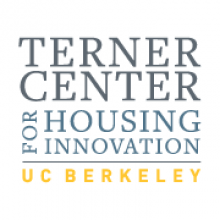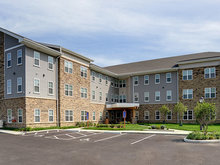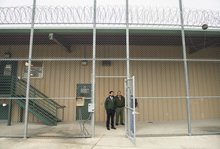0
Publication
Community:
Jun 23, 2023

This study aims to quantify the costs of operating PSH—including both the costs of managing the property and providing supportive services—and examine what the implications of insufficient funding are for properties, staff, and residents. Working with a collaborative of seven affordable housing developers in the Bay Area, we analyzed data on operating and supportive services expenses to understand what influences the costs for 26 properties that include PSH units. We then explored how resident outcomes, including participation in resident services, on-time rent payments, and move outs, were associated with costs. We also conducted interviews and focus groups with 53 staff at the various organizations and properties, and held eight focus groups with 76 residents at different buildings to understand their experiences with services and how these resources impact their day-to-day lives. This report focuses specifically on the role of operating subsidies in managing PSH properties: future reports coming from this research study will explore other factors that influence the success of PSH.
Authored by: Carolina Reid, Terner Center for Housing Innovation, U.C. Berkeley
Topics: Homelessness, Supportive housing
 Shared by Camille Anoll-Hunter
Shared by Camille Anoll-Hunter
Camille Anoll-Hunter posted a
on Aug 11, 2023
Carolina Reid, Terner Center for Housing Innovation, U.C. Berkeley
This study aims to quantify the costs of operating PSH—including both the costs of managing the property and providing supportive services—and examine what the implications of insufficient funding are for properties, staff, and residents.
0
Publication
Community:
Nov 17, 2022
Lessons for funders and social change leaders in search of the best ways to collaborate across sectors to end homelessness.
Authored by: Seyron Foo, Raji Hunjan, & Amy Kleine for the Stanford Social Innovation Review
Topics: Funding, Homelessness, Housing, Low-income, Supportive housing, Youth
 Shared by Sandra Ware
Shared by Sandra Ware
Sandra Ware posted a
on Jan 3, 2023
Seyron Foo, Raji Hunjan, & Amy Kleine for the Stanford Social Innovation Review
Lessons for funders and social change leaders in search of the best ways to collaborate across sectors to end homelessness.
0
Case study
Community:
Oct 25, 2022
Unsheltered homelessness is on the rise amid a systemic and widespread lack of affordable housing, supportive services, and livable wages. As the housing crisis worsens, homelessness has become increasingly visible and, as a result, increasingly dominant as a public concern.
Instead of addressing the issue’s root causes—a lack of housing and supportive services—many cities have leaned into punitive responses that criminalize homelessness, such as arresting people for sitting or sleeping in certain public places. But this approach is costly and ineffective. Police don’t solve homelessness, they only move it around—to other neighborhoods, jails, and emergency rooms—rather than connecting people with the housing and services they need.
What would it take to actually end homelessness for people living on the street? And how would that affect the time and resources police spend managing the problem without solving it? New data from a supportive housing program in Denver show what could happen when communities address the underlying causes of homelessness rather than continuing the status quo.
Authored by: Emily Peiffer for the Urban Institute's Housing Matters initiative
Topics: Criminal justice, Homelessness, Supportive housing
 Shared by Sandra Ware
Shared by Sandra Ware
Sandra Ware posted a
on Nov 1, 2022
Emily Peiffer for the Urban Institute's Housing Matters initiative
Unsheltered homelessness is on the rise amid a systemic and widespread lack of affordable housing, supportive services, and livable wages.
0
Case study
Community:
Aug 1, 2022
Created by the Older Americans Act in 1973, AAAs are part of the national Aging Network. AAAs are the local leaders that develop, coordinate, and deliver a wide range of home and community-based services. These services include information and referral/assistance, case management, home-delivered meals and meals in
congregate settings, in-home services, caregiver supports, transportation, evidence based health and wellness programs, long-term care ombudsman programs, and more. People who receive services provided by AAAs have improved health and well-being, helping them remain in their homes and thrive in the community.
Authored by: U.S Administration for Community Living
Topics: Disabilities, Food insecurity, Homelessness, Housing, Low-income, Seniors, Supportive housing
 Shared by Sandra Ware
Shared by Sandra Ware
Sandra Ware posted a
on Oct 18, 2022
U.S Administration for Community Living
Created by the Older Americans Act in 1973, AAAs are part of the national Aging Network. AAAs are the local leaders that develop, coordinate, and deliver a wide range of home and community-based services.
0
Video
Community:
Jul 15, 2022
People with disabilities have a place to turn to find information on COVID-19. They can contact the Disability Information and Access Line (DIAL) to find vaccine locations, make appointments and arrange for transportation. Trained staff at DIAL can also help people with disabilities track down community supports to help with independent living, such as services that help with health care benefits, financial assistance, housing, food and more. DIAL, operated as a collaboration between a consortium of organizations serving people with disabilities and USAging, is funded by the Administration for Community Living. Staff at DIAL can also make referrals to local disability organizations. For more information, watch this short informational video.
Authored by: Administration for Community Living
Topics: Advocacy, Asset building, Disabilities, Legislation & Policy, Mobility, Stability, Supportive housing
 Shared by Karina George
Shared by Karina George
Karina George posted a
on Jul 15, 2022
Administration for Community Living
People with disabilities have a place to turn to find information on COVID-19. They can contact the Disability Information and Access Line (DIAL) to find vaccine locations, make appointments and arrange for transportation.
0
Report
Community:
Jun 29, 2022
Looking largely at the 2020-2021 school year, the report is chock-full of information about how schools apply research-based strategies in a variety of different contexts – from very different school systems across multiple states – to make research translate into positive experiences and outcomes for students and their teachers in three critical areas:
• Instructional work, where math or English-language-arts teams, including instructional coaches, special-education teachers, and English learner/multilingual teachers, work to improve the quality of instruction within classrooms.
• Early Warning and Response strategies, where grade-level or cross-functional teams work to create more supportive school environments, where young people are connected to adults, each other, and the school community.
• Well-Matched Postsecondary initiatives, where school-based teams of counselors, service providers, district and school leaders, teachers, and other staff band together to implement evidence-based strategies and processes that support postsecondary application, enrollment, and persistence.
At its heart, improvement is about learning. Each of these networks study their own work, and consistently and strategically make adaptations to increase their effectiveness as the organizational hub supporting schools. And they demonstrate how lessons need not fade away, but when codified, systematized, and shared, they can deepen our collective capacity to accelerate the field’s learning and growth.
Authored by:
Topics: Advocacy, Attendance, Child welfare, CLPHA, Community development, Education, Grade-level proficiency, Housing, Literacy, Low-income, Partnerships, Place-based, Supportive housing, Sustainability, Youth
 Shared by Karina George
Shared by Karina George
Karina George posted a
on Jun 29, 2022
Looking largely at the 2020-2021 school year, the report is chock-full of information about how schools apply research-based strategies in a variety of different contexts – from very different school systems across multiple states – to make research translate into positive experiences and outcomes f
1
Video
Community:
Jun 21, 2022
In this webinar, we heard from the Housing Authority of the City of Austin about how they fund and sustain their resident programs. Head of Strategic Initiatives and Resource Development, Catherine Crago, discussed how their nonprofit subsidiary, Austin Pathways, assists with blending and braiding financing, including corporate and philanthropic funding and in-kind gifts.
This webinar is part on an ongoing series sponsored by the Housing Is Working Group. It is a collective of public housing authorities and non-profit organizations working in health, education, and housing sectors coming together monthly via virtual meetings and other forums to discuss cross-sector work and challenges.
Authored by:
Topics: Advocacy, CLPHA, Data sharing, Housing, Housing Is Working Group, Legislation & Policy, Supportive housing, Sustainability
 Shared by Karina George
Shared by Karina George
Karina George posted a
on Jun 21, 2022
In this webinar, we heard from the Housing Authority of the City of Austin about how they fund and sustain their resident programs.
0
Video
Community:
Jun 17, 2022
When public libraries and public housing authorities intentionally join forces, the benefits are real and lasting for those living in public housing. This session highlights the partnership between Cuyahoga Metropolitan Housing Authority (CMHA) and Cleveland Public Library (CPL). CMHA and CPL executive leaders will discuss how their agencies strategically aligned their vision for impact and are meeting community needs through the library’s free and accessible resources. CMHA and CPL leaders will also share strategies for creating effective cross-sector partnerships that can drive greater economic mobility and better education and
health outcomes for individuals and families.
Authored by:
Topics: Advocacy, Asset building, CLPHA, Education, Family engagement, Homelessness, Housing, Legislation & Policy, Literacy, Low-income, Supportive housing
 Shared by Karina George
Shared by Karina George
Karina George posted a
on Jun 17, 2022
When public libraries and public housing authorities intentionally join forces, the benefits are real and lasting for those living in public housing. This session highlights the partnership between Cuyahoga Metropolitan Housing Authority (CMHA) and Cleveland Public Library (CPL).
0
Video
Community:
Jun 17, 2022
The Administration for Community Living’s Aging and Disability Network is a multifaceted service infrastructure for older adults and people with disabilities so they can find housing and obtain services like chore assistance, delivered meals, and transportation. By partnering with this community infrastructure, PHAs can improve voucher utilization and leverage and align resources so older adults, people with disabilities, and people experiencing homelessness —all priority populations for federal housing assistance—can obtain supportive services needed to attain housing stability, optimize well-being, and avoid homelessness and costly institutional care. Join this session to learn about PHA partnerships with this infrastructure, discuss the dynamics of cross-sector partnerships in community-driven approaches, and discover opportunities available through the Housing and
Services Resource Center.
Authored by:
Topics: Advocacy, Community development, Disabilities, Health, Housing, Partnerships, Research, Seniors, Supportive housing, Sustainability
 Shared by Karina George
Shared by Karina George
Karina George posted a
on Jun 17, 2022
The Administration for Community Living’s Aging and Disability Network is a multifaceted service infrastructure for older adults and people with disabilities so they can find housing and obtain services like chore assistance, delivered meals, and transportation.
0
Video
Community:
Jun 17, 2022
Housing providers are uniquely positioned to find innovative and meaningful ways to engage residents with lived experience in program design and implementation to ensure investments are focused, efficient, and culturally appropriate. Learn how the King County Housing Authority in Washington and The Community Builders in Cincinnati, OH are responding to the needs and desires of their residents in new ways that leverage the assets and strengths of their residents to ensure that young children thrive. Attendees will leave this session with new ideas to incorporate resident input in early childhood programming to make it more effective.
Authored by:
Topics: Advocacy, CLPHA, Education, Family engagement, Housing, Low-income, Research, Supportive housing, Sustainability
 Shared by Karina George
Shared by Karina George
Karina George posted a
on Jun 17, 2022
Housing providers are uniquely positioned to find innovative and meaningful ways to engage residents with lived experience in program design and implementation to ensure investments are focused, efficient, and culturally appropriate.
0
Video
Community:
Jun 17, 2022
This panel discussion will examine the results of efforts to significantly expand the reach of HUD’s Family Self-Sufficiency Program through partnerships between the nonprofit Compass Working Capital and the Boston and Cambridge Housing Authorities. Panelists will discuss their program model and its evaluation, how they have scaled up FSS, what results they have experienced to date, and where they plan to go from here. An FSS program participant will participate in the panel and share their perspective on how the program has benefitted them.
Authored by:
Topics: Advocacy, Asset building, CLPHA, Early childhood, Education, Housing, Legislation & Policy, Research, Supportive housing
 Shared by Karina George
Shared by Karina George
Karina George posted a
on Jun 17, 2022
This panel discussion will examine the results of efforts to significantly expand the reach of HUD’s Family Self-Sufficiency Program through partnerships between the nonprofit Compass Working Capital and the Boston and Cambridge Housing Authorities.
0
Video
Community:
Jun 17, 2022
The Low Income Investment Fund (LIIF) will moderate a unique cross-sector panel of housing and early care and education (ECE) experts on strategies and best practices for co-locating ECE facilities within affordable housing developments. Discussion of specific financing techniques and site design considerations from existing co-located facilities will provide attendees lessons on policy and programmatic changes needed to incentivize co-location. Panelists include innovators in affordable housing development, government and public sectors, early care and education operations, and community development finance.
Authored by:
Topics: Advocacy, Broadband, Child welfare, CLPHA, Family engagement, Food insecurity, Health, Housing, Legislation & Policy, Low-income, Nutrition, School-readiness, Supportive housing, Sustainability
 Shared by Karina George
Shared by Karina George
Karina George posted a
on Jun 17, 2022
The Low Income Investment Fund (LIIF) will moderate a unique cross-sector panel of housing and early care and education (ECE) experts on strategies and best practices for co-locating ECE facilities within affordable housing developments.
0
Video
Community:
Jun 17, 2022
Public and affordable housing agencies and organizations have the potential to serve as a crucial foundation for promoting early school success for economically challenged, fragile and otherwise marginalized children and families through a 24/7/365 multigenerational system of support and an ability to meet families 'where they are.' During this engaging session, Housing Is and our long-time partner The Campaign for Grade-Level Reading will elevate the critical importance of these housing-education partnerships, with special attention to the way in which such collaborations begin. This plenary will explore initial partnership development work taking place in Kansas City, MO, one of the 20 finalist communities recently announced for the 2022 All-America City Awards. The theme of this year's award is "Housing as a Platform to Promote Early School Success and Equitable Learning Recovery." Attendees have the unique opportunity to hear from a partnership in its earlier stages of development and learn alongside the speakers how critical cross-sector work can be launched.
Authored by:
Topics: Advocacy, CLPHA, Early childhood, Education, Healthy homes, Housing, Low-income, Supportive housing, Sustainability
 Shared by Karina George
Shared by Karina George
Karina George posted a
on Jun 17, 2022
Public and affordable housing agencies and organizations have the potential to serve as a crucial foundation for promoting early school success for economically challenged, fragile and otherwise marginalized children and families through a 24/7/365 multigenerational system of support and an ability
0
Policy Brief
Community:
May 5, 2021
In March 2020, the COVID-19 pandemic forced many public housing authorities (PHAs) to quickly adjust their operational procedures to protect their staff while providing emergency assistance to residents. Many PHAs had to close their offices and convert to remote operations almost overnight, while staff focused on supporting their tenants by delivering them food, doing wellness checks for vulnerable residents, and ensuring they had access to and in some cases providing the technology needed for children to attend school remotely and isolated residents to remain connected to friends, family, and service providers. Moreover, as the economic crisis caused by the pandemic worsened, PHAs were under pressure to rapidly adjust rents for tenants who had lost income and process housing choice voucher (HCV) applications so people could use their vouchers to find housing. This brief provides insights into how public housing authorities used additional flexibilities that became available through a series of HUD-issued regulatory and statutory waivers, and makes the case for the potential benefits for added flexibilities for the HCV and public housing programs going forward.
Authored by: Monique King-Viehl, Elizabeth Champion, & Susan J. Popkin for URBAN INSTITUTE
Topics: Advocacy, COVID-19, Data sharing, Health, Housing, Safety, Supportive housing
 Shared by Housing Is
Shared by Housing Is
Housing Is posted a
on May 25, 2021
Monique King-Viehl, Elizabeth Champion, & Susan J. Popkin for URBAN INSTITUTE
In March 2020, the COVID-19 pandemic forced many public housing authorities (PHAs) to quickly adjust their operational procedures to protect their staff while providing emergency assistance to residents.
0
Publication
Community:
Opened in summer 2018 on the north side of Columbus, Ohio, Laurel Green Apartments is an affordable permanent supportive housing development for residents with mental health conditions.
Authored by: PD&R Edge Online Magazine
Topics: Homelessness, Housing, Low-income, Mental health, Supportive housing
 Shared by Housing Is
Shared by Housing Is
Housing Is posted a
on Jun 11, 2019
PD&R Edge Online Magazine
Opened in summer 2018 on the north side of Columbus, Ohio, Laurel Green Apartments is an affordable permanent supportive housing development for residents with mental health conditions.
0
Research
Community:
May 30, 2019
Children experiencing homelessness or living in inadequate and unstable housing are exposed to many risks, including a heightened threat of involvement with the child welfare system. Can child welfare agencies play a role in addressing the lack of affordable housing? What if providing housing, plus other supportive services, could prevent out-of-home placements to foster care? What if, for those children already in foster care, it could help them reunify with their parents?
Authored by: Mary K. Cunningham, Mike Pergamit, and Sarah Gillespie for The Urban Institute
Topics: Child welfare, Research, Stability, Supportive housing
 Shared by Housing Is
Shared by Housing Is
Housing Is posted a
on May 30, 2019
Mary K. Cunningham, Mike Pergamit, and Sarah Gillespie for The Urban Institute
Children experiencing homelessness or living in inadequate and unstable housing are exposed to many risks, including a heightened threat of involvement with the child welfare system. Can child welfare agencies play a role in addressing the lack of affordable housing?
0
Publication
Community:
The role of public and nonprofit hospitals and hospital systems in supportive housing is not an obvious one at first glance. Traditionally, the role of nonprofit and public hospitals has been to provide primary healthcare and additional health services to the public, often to select “catchment” areas or neighborhoods. The extent of these institutions’ role in housing was limited to either providing a) short-term inpatient beds for medical or treatment services, or b) residences for nurses or other hospital staff. Why then are more and more nonprofit and public hospitals becoming involved in not only creating, but also providing and managing supportive housing?
Authored by: Richard Cho for CSH
Topics: Health, Homelessness, Housing, Partnerships, Research, Supportive housing
 Shared by Housing Is
Shared by Housing Is
Housing Is posted a
on Apr 17, 2019
The role of public and nonprofit hospitals and hospital systems in supportive housing is not an obvious one at first glance.
0
Publication
Community:
To better align families’ child welfare and supportive housing needs, child welfare leaders must clearly present their vision for the role of supportive housing as a part of positive child welfare outcomes. State administrators and leaders must consider critical aspects of housing within the Family First IV-E Prevention Program Five-Year State Plan (State Plan) and introduce necessary state policy, legislative, and budgetary changes to ensure that stable, supportive housing is central to long-term family stability and well-being
Authored by: CSH
Topics: Child welfare, Family engagement, Housing, Legislation & Policy, Supportive housing
 Shared by Housing Is
Shared by Housing Is
Housing Is posted a
on Apr 12, 2019
To better align families’ child welfare and supportive housing needs, child welfare leaders must clearly present their vision for the role of supportive housing as a part of positive child welfare outcomes.
0
Publication
Community:
The Keeping Families Together model turned the usual paradigm for prioritizing affordable housing on its head. Rather than targeting the most “stable” families, Keeping Families Together sought out families with the most complicated cases—those at greatest risk. Thanks to this approach, families once on the brink of crisis now have a permanent place to call home, as well as the services and support they need to stay together.
Authored by: CSH
Topics: Child welfare, Family engagement, Homelessness, Housing, Low-income, Partnerships, Research, Supportive housing
 Shared by Housing Is
Shared by Housing Is
Housing Is posted a
on Apr 4, 2019
The Keeping Families Together model turned the usual paradigm for prioritizing affordable housing on its head. Rather than targeting the most “stable” families, Keeping Families Together sought out families with the most complicated cases—those at greatest risk.
0
Publication
Community:
Apr 1, 2019
The Housing and Medicaid Services Pilot Program in Indianapolis, also known as the Blue Triangle Housing Program, is a collaboration that includes Anthem, the City of Indianapolis, a non-profit housing organization, and a community mental health center (CMHC).
Authored by: CSH
Topics: Health, Housing, Medicaid / Medicare, Midwest, Partnerships, Supportive housing
 Shared by Housing Is
Shared by Housing Is
Housing Is posted a
on Apr 4, 2019
The Housing and Medicaid Services Pilot Program in Indianapolis, also known as the Blue Triangle Housing Program, is a collaboration that includes Anthem, the City of Indianapolis, a non-profit housing organization, and a community mental health center (CMHC).
0
Publication
Community:
Mar 1, 2019
CSH selected the Center for Data Science and Public Policy (DSaPP) at the University of Chicago to develop a web-based data integration tool, which was completed in 2018. The tool connects county jail administrative data from the justice system to homeless system data, through communities’ Homeless Management Information Systems (HMIS).
Authored by: CSH
Topics: Criminal justice, Data sharing, Homelessness, Housing, Midwest, Partnerships, Supportive housing
 Shared by Housing Is
Shared by Housing Is
Housing Is posted a
on Apr 4, 2019
CSH selected the Center for Data Science and Public Policy (DSaPP) at the University of Chicago to develop a web-based data integration tool, which was completed in 2018.
0
News Article
Community:
Feb 28, 2019
The city says it plans to move ahead with a costly, stopgap renovation of a New Orleans jail building to house dozens of inmates with mental health issues — but it also wants to keep its options open.
Authored by: Matt Sledge for the New Orleans Advocate
Topics: Criminal justice, Housing, Legislation & Policy, Low-income, Mental health, South, Supportive housing
 Shared by Housing Is
Shared by Housing Is
Housing Is posted a
on Feb 28, 2019
Matt Sledge for the New Orleans Advocate
The city says it plans to move ahead with a costly, stopgap renovation of a New Orleans jail building to house dozens of inmates with mental health issues — but it also wants to keep its options open.
0
News Article
Community:
Jan 24, 2019
A new collaboration of San Francisco Bay Area foundations and businesses is raising $540 million to tackle the region’s affordable housing crisis.
Authored by: Affordable Housing Finance
Topics: Community development, Health, Housing, Low-income, Partnerships, Supportive housing, West Coast
 Shared by Housing Is
Shared by Housing Is
Housing Is posted a
on Jan 28, 2019
Affordable Housing Finance
A new collaboration of San Francisco Bay Area foundations and businesses is raising $540 million to tackle the region’s affordable housing crisis.
0
Publication
Community:
Jan 23, 2019
To explore the benefits and challenges of rapid re-housing support services, How Housing Matters asked a group of experts to weigh in. Contributing to the discussion are Kathryn Monet, chief executive officer at the National Coalition for Homeless Veterans, Jacob Donnelly, director of supportive services at Swords to Plowshares, and Samantha Batko, research associate at the Urban Institute.
Authored by: How Housing Matters for The Urban Institute
Topics: Asset building, Health, Homelessness, Housing, Low-income, Supportive housing, Workforce development
 Shared by Housing Is
Shared by Housing Is
Housing Is posted a
on Jan 24, 2019
How Housing Matters for The Urban Institute
To explore the benefits and challenges of rapid re-housing support services, How Housing Matters asked a group of experts to weigh in.
0
News Article
Community:
Jan 16, 2019
In 2018, over half a million people experienced homelessness on a given night in the US. Of those, roughly one in three experienced unsheltered homelessness in a car, outside, or in other places not meant for human habitation.
Authored by: Aaron Shroyer How Housing Matters
Topics: Homelessness, Housing, Low-income, Stability, Supportive housing
 Shared by Housing Is
Shared by Housing Is
Housing Is posted a
on Jan 17, 2019
Aaron Shroyer How Housing Matters
In 2018, over half a million people experienced homelessness on a given night in the US. Of those, roughly one in three experienced unsheltered homelessness in a car, outside, or in other places not meant for human habitation.


 Shared by Camille Anoll-Hunter
on Aug 11, 2023
Shared by Camille Anoll-Hunter
on Aug 11, 2023


 Shared by Sandra Ware
on Jan 3, 2023
Shared by Sandra Ware
on Jan 3, 2023

 Shared by Sandra Ware
on Nov 1, 2022
Shared by Sandra Ware
on Nov 1, 2022
 Shared by Sandra Ware
on Oct 18, 2022
Shared by Sandra Ware
on Oct 18, 2022
 Shared by Karina George
on Jul 15, 2022
Shared by Karina George
on Jul 15, 2022
 Shared by Karina George
on Jun 29, 2022
Shared by Karina George
on Jun 29, 2022
 Shared by Karina George
on Jun 21, 2022
Shared by Karina George
on Jun 21, 2022
 Shared by Karina George
on Jun 17, 2022
Shared by Karina George
on Jun 17, 2022
 Shared by Karina George
on Jun 17, 2022
Shared by Karina George
on Jun 17, 2022
 Shared by Karina George
on Jun 17, 2022
Shared by Karina George
on Jun 17, 2022
 Shared by Karina George
on Jun 17, 2022
Shared by Karina George
on Jun 17, 2022
 Shared by Karina George
on Jun 17, 2022
Shared by Karina George
on Jun 17, 2022
 Shared by Karina George
on Jun 17, 2022
Shared by Karina George
on Jun 17, 2022
 Shared by Housing Is
on May 25, 2021
Shared by Housing Is
on May 25, 2021

 Shared by Housing Is
on Jun 11, 2019
Shared by Housing Is
on Jun 11, 2019

 Shared by Housing Is
on May 30, 2019
Shared by Housing Is
on May 30, 2019
 Shared by Housing Is
on Apr 17, 2019
Shared by Housing Is
on Apr 17, 2019
 Shared by Housing Is
on Apr 12, 2019
Shared by Housing Is
on Apr 12, 2019
 Shared by Housing Is
on Apr 4, 2019
Shared by Housing Is
on Apr 4, 2019
 Shared by Housing Is
on Apr 4, 2019
Shared by Housing Is
on Apr 4, 2019
 Shared by Housing Is
on Apr 4, 2019
Shared by Housing Is
on Apr 4, 2019

 Shared by Housing Is
on Feb 28, 2019
Shared by Housing Is
on Feb 28, 2019

 Shared by Housing Is
on Jan 28, 2019
Shared by Housing Is
on Jan 28, 2019
 Shared by Housing Is
on Jan 24, 2019
Shared by Housing Is
on Jan 24, 2019
 Shared by Housing Is
on Jan 17, 2019
Shared by Housing Is
on Jan 17, 2019